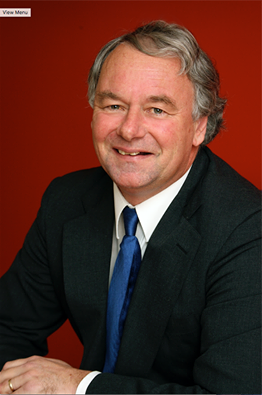Self-Directed Learning – Dr. John Lodewijks

Introduction –
In many occupations, there are mandatory professional development requirements. Practitioners have to satisfy accreditation boards in terms of their self-education with respect to prescribed hours of attendance at seminars, workshops and conferences or completing on-line modules of study and various formal or internet exams. Others, for whom there are no prescribed hours of further study, are motivated and interested in ‘lifelong learning’ which has been defined as the ongoing, voluntary, and self-motivated pursuit of knowledge for either personal or professional reasons. However, what has been little studied is the extra out-of-class self-directed learning that takes place while students are formally enrolled in a full-time university course.
The learning which this article documents primarily occurs over the summer vacation but quite a significant amount occurs while the student carries a full university load. We normally associate vacations with relaxation and time with family and friends or an opportunity take an internship or paid work to replenish saving for the next semester tuition fees and living costs. It is quite surprising then to document the extent that students voluntarily seek out further study opportunities and credentials on their own initiative to further enhance their future employability. Providers of higher education often make the mistake of assuming that they are the only providers of education to their students to make them ‘job-ready’ upon graduation. This is not the case. Students make up their own minds on how to supplement and enhance their skills beyond their university classroom activities.
The case study we provide here covers approximately 70 final year undergraduate business students at our highly ranked business school and finds a wide range of learning initiated solely by the students themselves in the form of self-directed learning.
Vacation Study at Reputable Institutions: Real or Virtual –
Several students took the summer break opportunity – of approximately four months – to study at well-known institutions. There was no formal exchange program arrangement. The students simply thought it an enriching experience to study at another institution. The London School of Economics and Political Science was a popular choice over the month of July for a student-initiated Summer Programme with intensive courses in ‘Competitive Strategy and Game Theory’, ‘Bargaining and Negotiation’, ‘Corporate Law’, and ‘Fixed Income Securities, Debt Markets and the Macro-economy’. Other students travelled to the University of Utrecht for a Summer school course on ‘The Entrepreneurial Side of Business’ and to New York University for their summer program course ‘Introduction to Marketing’.
Many students avoided the expense of overseas travel and took online courses organised by Coursera on behalf of various institutions. These included an ‘Introduction to SEO’ and ‘Advanced Search Engine Optimisation Strategy’ by the University of California, ‘How to Grow and Finance your Start-up’ by the London Business School, ‘Content, Advertising and Social IMC’ by Northwestern University, ‘Marketing in a Digital Work’ by the University of Illinois at Urbana-Champaign and ‘Food and Beverage Management’ by the Universita Bocconi. There were many more courses that students enrolled for to add to that list including ‘Project Management Principles and Practices’, ‘The Role of Global Capital Markets’, ‘Financing and Investing in Infrastructure’, ‘Financial Modelling and Valuation’, ‘Public-Private Partnerships’, ‘Economic Growth and Distributive Justice’ and ‘Introduction to Neuroeconomics: How the Brain Makes Decisions’.
There are only so many topics that an undergraduate curriculum can cover and students who detect gaps or skill deficiencies can remedy this through these online courses. Digital marketing is a particularly popular choice among students. Many students studied for Google Certification in Google Adwords Fundamentals and Google Display Advertising online. To achieve this certification, you must complete a total of 13 different modules of study work which consists of usually 5-6 different parts of reading and video teaching in each module. At the end of each module there is a quiz to complete. After completing all the Quizzes you have to complete two exams that go for 120 minutes each (one for Adwords Fundamentals and the other for Display Advertising) with a pass mark of 80%. If you achieve 80% or higher in the exams you receive the certification which is recognised as a digital marketing qualification and gets you access to the Google Partners exclusive membership (this allows you to attend their masterclass events and receive all their information in regards to algorithm updates and marketing). This is an example of the depth of learning in these courses. Many courses run for 32 Hours (4 weeks, 8 hrs per week) or 42 Hours (7 weeks, 6 hrs per week).
To gauge the extent of student participation in these courses, out of our sample of 70 final year students, 32 students completed courses at reputable institutions: real or virtual, over the summer of 2016 in addition to their regular undergraduate courses.
Acquiring Professional Accreditations and Certifications –
We have already mentioned Google Certification in Google Adwords Fundamentals and Google Display Advertising. There are many other accreditations and certifications that students acquired. These included professional programs offered at the International Centre for Culinary Arts, Dubai, a Financial Market Technical Analysis (certified) course offered by the National Stock Exchange of India, a Digital Marketing Certified Associate Training course, Fashion Illustration and Graphic Design programs, and a Diamond Graduate certification at the International Gemological Institute. One student completed training in a Gelato Program and Barista Skills program which were specifically designed for those seeking employment in these areas or for entrepreneurs who are looking at going into the food and beverage industry. It is also included an Award in Food Safety for Catering. Some of these courses are more vocational in nature but lead to qualifications that are essential to get positions in these industries. Ten of our sample of 70 students completed these professional accreditations and certifications.
Conclusion –
Prospering in the modern world of business demands continual retraining, new skill acquisition and lifelong learning. Even in retirement many retirees avail themselves of the opportunity to keep their mind fresh through various short courses and study programs. The sooner that university students get in the habit of self-directed learning in addition to their formal courses, the better. They need to take charge of their learning, to fill gaps in their knowledge base or skills development. At the institution we have used as our exemplar, we provide course credits to encourage student-led learning. The university administrator’s role is simply to monitor that the selected learning is robust and the assessment is genuine. The institution is declaring that students need to take ownership for their own learning, and acknowledges that with the rapid growth of business learning, no one curriculum can meet the needs of every individual student. Hence, the onus is on the student to select where the gaps are in their knowledge base and fill the gaps appropriately. When given this opportunity, students do seem to make wise choices.
About the author: Dr John Lodewijks, Professor and Vice President – Academic
Dr John completed a Bachelor of Economics from the University of Sydney (First Class Honours), Master of Economics from the University of New England and an M.A and PhD in Economics from Duke University, USA. After 22 years as an academic economist at the University of New South Wales, Australia, he was Head of the School of Economics and Finance at the University of Western Sydney for a further five years. After numerous other achievements, he is currently the Professor and Vice President – Academic with SP Jain School of Global Management.
Master of Economics from the University of New England and an M.A and PhD in Economics from Duke University, USA. After 22 years as an academic economist at the University of New South Wales, Australia, he was Head of the School of Economics and Finance at the University of Western Sydney for a further five years. After numerous other achievements, he is currently the Professor and Vice President – Academic with SP Jain School of Global Management.

